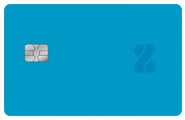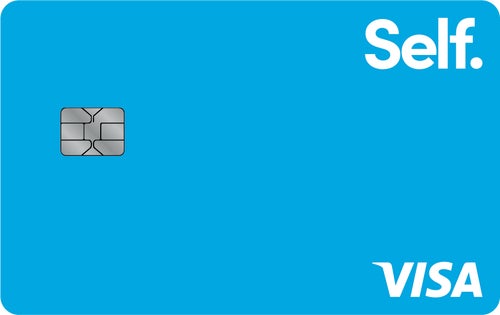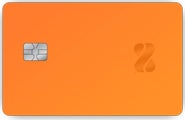All information about the PayPal Prepaid Mastercard® has been collected independently by CreditCards.com. The issuer did not provide the content, nor is it responsible for its accuracy.
Comparing the best prepaid credit cards
| Credit card | Best for… |
|---|
| Brink's Prepaid Mastercard® | Best prepaid option from Mastercard |
| Netspend® Visa® Prepaid Card |
| Best Visa card for everyday use |
| Western Union® Netspend® Prepaid Mastercard® | Best for Western Union members |
| Netspend® Prepaid Mastercard® | Best Mastercard for everyday use |
| Control™ Prepaid Mastercard® | Best for select rewards |
| The secured Self Visa® Credit Card1 | Best for low deposit |
| PayPal Prepaid Mastercard® | Best for PayPal users |
| Netspend® All-Access® Account | Best for interest savings |
| Greenlight Debit Card | Best for parents |
| Netspend® Prepaid Mastercard® – Proud Partner of MLB® | Best for baseball fans |
Editor’s picks: Prepaid credit card details
Brink’s Prepaid Mastercard®: Best prepaid option from Mastercard
Why we picked it: This card can be used anywhere that takes Mastercard – one of the dominant worldwide payment networks –
making it a trustworthy choice that can be used almost anywhere.
Pros: You won’t face late fees or interest charges with this kind of card, plus you’ll have access
to the Brink’s Money Prepaid Mobile App to manage your account. Also, Brink’s has been securing cash and valuables
since 1859, making it a card you can count on.
Cons: This card has no rewards and can’t grow your credit score, limiting its utility. It also
requires a variable monthly fee.
Who should apply? The Brink’s Prepaid Mastercard is a good choice for those who want an easy way to
pay prior to opening a credit card or secured card account.
Read more on the Brink’s
Prepaid Mastercard.
Netspend® Visa® Prepaid Card: Best Visa card for everyday use
Why we picked it: Being a Visa card, this option
gives a convenient way to pay at merchants all over the globe. You won’t run into trouble when it comes to having a
viable payment option.
Pros: There’s no minimum balance required, no activation fee and no credit check when you open a
Netspend Visa card account. You can also use the Netspend Mobile App to manage your account and thanks to the nature
of this type of card, there’s no interest charges or late fees.
Cons: There’s no chance at growing your credit or earning rewards with this type of card, limiting
its long-term impact. It also has a variable monthly fee.
Who should apply? If you’re looking for a convenient way to spend prior to signing up for a credit
card, this is a solid, widely accepted choice.
Read more on the Netspend Visa
Prepaid Card.
Western Union® Netspend® Prepaid Mastercard®: Best for Western Union members
Why we picked it: After opening a card account, you can send and receive a Western Union® Money
Transfer, or use their website to shop or pay bills.
Pros: Moving your money is easy with direct deposit and much like the other options, this card
doesn’t feature late fees or interest charges.
Cons: This card has a monthly fee of up to $9.95. Also, like all prepaid cards, you won’t earn
rewards or improve
your credit score.
Who should apply? Western Union members will appreciate the new capabilities created by this card.
It’s a convenient, simple way to spend for a monthly fee.
Read more on the Western
Union Netspend Prepaid Mastercard.
Netspend® Prepaid Mastercard®: Best Mastercard for everyday use
Why we picked it: Payments can be received quickly via direct deposit, sometimes processed up to
two days faster than many banks. Cardholders can earn Payback Rewards on eligible purchases which are then applied
to your account.
Pros: Deposits and other account services can be managed using the Netspend® Mobile App on your
phone.
Cons: There is up to a $9.95 monthly fee in addition to $2.95 for ATM withdrawals, up to $3.95 for
cash reloads, the greater of 2% or $5 a month in payroll fees and a potential $5.95 monthly fee if your account is
inactive.
Who should apply? In lieu of a bank account, this can be a convenient option for making and
receiving payments as well as withdrawing cash.
Read more on the Netspend®
Prepaid Mastercard®.
Control™ Prepaid Mastercard®: Best for select rewards
Why we picked it: This Mastercard option gives cash back rewards on select qualifying purchases.
There’s also no credit check and no cost to order the card.
Pros: You can manage your money through the Control Prepaid Mastercard’s mobile app and won’t be
subject to overdraft fees on card purchases.
Cons: You can’t grow your credit with this card and it requires a variable fee each month.
Who should apply? This is a good choice for those who want to avoid extra fees and even earn some
cash back as they spend. However, there are cash back cards for
poor credit that would do you better in the long run.
Read more on the Control
Prepaid Mastercard.
The secured Self Visa® Credit Card1: Best for building credit
Why we picked it: It can help you build credit without tying up hundreds in a security deposit. You can put down just $100 and get a matching credit limit, which, while low, still gives you some wiggle room to make and pay off small purchases while keeping credit utilization in check.
Pros: It doesn’t require a credit check, so you won’t put your score at risk by applying. You may be eligible for an unsecured credit limit increase after just six months of responsible card use.
Cons:It offers no noteworthy perks or rewards program, limiting its long-term value. Its ongoing annual fee is low, but plenty of other secured cards charge no annual fee.
Who should apply? The secured Self Visa card is a simple, relatively-low cost credit-building option with a low deposit requirement and no credit check required, making it a solid option if you’re looking to avoid dinging your credit score with a hard pull and want to tie up as little money as possible while you work on your score.
Read more on the self Secured Visa® Credit Card.
PayPal Prepaid Mastercard®: Best for PayPal users
Why we picked it: You can earn rewards through PayPal Payback Rewards, which allows for earning on
qualifying purchases from select merchants. And for easy money management, you can move cash directly from your
PayPal account.
Pros: You can manage your money easily with this card’s mobile app and direct deposit capabilities.
Also, you can add cash at more than 130,000 reload locations in the U.S.
Cons: This card comes with a variable monthly fee and no credit-building features.
Who should apply? PayPal regulars might appreciate the benefits offered by this card thanks to its
available rewards and convenience.
Read more on the PayPal
Prepaid Mastercard.
Netspend® All-Access® Account: Best for interest savings
Why we picked it: This option from Visa allows for up to 6% Annual Percentage Yield on your
account, so you can watch your balance grow. There’s also no credit check, activation fee or minimum balance
required.
Pros: You get access to online banking and the account’s mobile app after opening, so tracking your
transactions should be easy. You can also earn cash back on qualifying purchases through Payback Rewards.
Cons: The Netspend All-Access Account by Pathward requires a $5 standard monthly service fee (new
cardholders pay $0 in monthly service fees for a limited time) and doesn’t have any credit-building features.
Who should apply? Those who plan on depositing a large balance can benefit from the APY of this
card. However, if you have no credit history and this looks like an enticing option, you may be better off using a
credit card to establish a score.
Read more on the Netspend
All-Access Account.
Greenlight Debit Card: Best for parents
Why we picked it: This option is designed to help teens get familiar with card habits, so it has
some unique perks. Parents can set automated allowances that can be paid out whenever they’d like, plus you can add
things like recurring chores, savings goals and spending limits to help instill healthy habits.
Pros: Parents can limit the stores, websites and restaurants their kids spend at with this card.
There’s also real-time notification of where payments happened and how much was spent, and you can deactivate the
card in the mobile app if it were to ever go missing.
Cons: There’s no way to build credit with this card. Also, it has a monthly fee of $4.99.
Who should apply? Parents trying to familiarize their teens with good financial habits should
consider this card thanks to its unique functionality.
Read more on the Greenlight Debit
Card review.
Netspend® Prepaid Mastercard® – Proud Partner of MLB®: Best for baseball fans
Why we picked it: For fans of Major League Baseball, this card offers all the benefits of other
Netspend Prepaid cards but can be branded with the logo of your favorite team. Receive payments quickly via direct
deposit and can earn Payback Rewards on eligible purchases.
Pros: Deposits and other account services can be managed using the Netspend® Mobile App on your
phone.
Cons: There is a $9.95 monthly fee in addition to $2.95 for ATM withdrawals, $3.95 for cash
reloads, the greater of $5 or 2% a month in payroll fees and a potential $5.95 monthly fee if your account is
inactive.
Who should apply? This can be a convenient option for baseball fans in need of sending and
receiving payments as well as withdrawing cash.
Read more on the Netspend®
Prepaid Mastercard – Proud Partner of MLB®.
What is a prepaid credit card?
Prepaid cards are among the fastest growing financial products on the market. General-purpose, reloadable prepaid cards have grown from a $1 billion purchase volume in 2003 to over $300 billion by 2023.
Yet, as popular as they are, there is a ton of misunderstanding about them. For example, although it gets mentioned,
there is no such thing as a prepaid credit card – it’s just a prepaid card and they’re almost opposites. Here, we
take a look at some common features of prepaid cards and how they compare to other card types.
How does a prepaid card work?
Using prepaid cards is very simple. You just need to load the amount of money you want to have available for purchases onto the card; then, as you use the card, keep an eye on your balance to be sure it will cover the purchases you want to make.
For example, if you load a prepaid card with $100 and buy something for $20, you’ll have a balance of $80 left to spend. If the balance reaches $0, or if you want to make a purchase that exceeds the card’s current balance, you must add more money or cover the difference with another form of payment, as you would with a gift card.
What is the difference between prepaid cards and other types of cards?
A prepaid card, also called a pay-as-you-go card, is a product that only lets you spend money you’ve loaded onto it
in advance. Instead of borrowing money from a bank that you must pay back later (as with a credit card), you are
spending your own preloaded money. One of the conveniences of prepaid cards is that they are available almost
anywhere, from grocery stores to gas stations, and you can use them anywhere their payment network (such as Visa or Mastercard) is accepted.
Here are some of the most common types of prepaid cards:
- General-purpose reloadable cards
- Gift cards
- Retail cards
- Transit cards
- Health savings account cards
- Payroll cards
- Government benefit cards
A prepaid card is a great tool for someone who needs a little help budgeting, doesn’t have the best credit score or finds paying with cash inconvenient. But unlike credit cards, prepaid cards won’t let you carry a balance with interest or help you build your credit score.
Here are the three main types of cards you’ll encounter when looking for a financial card other than a prepaid card, along with how they work and what makes them unique.
Prepaid cards vs. debit cards
A debit card is issued by a bank and linked to a checking or savings account. Each time you use a debit card, you
are transferring money electronically from your bank account to pay for your purchase, reducing your bank account
balance. You can also use a debit card to withdraw cash from your account via an ATM. Debit cards are a big
industry. Wells Fargo dominates the industry, with more than
50 other issuers competing in the market, according to the Nilson report.
A debit card may not have the protections of credit or charge cards, although some financial institutions place
protections on their debit cards, and debit cards can have federal deposit insurance through the bank.
If you overcharge, your card may be declined or your bank may charge you overdraft fees to cover the purchase. Debit
cards also usually have daily spending limits, so you may not be able to make especially large purchases with a
debit card.
Prepaid cards vs. credit cards
A credit card is a lending product that allows you to borrow money from a bank to cover your purchases. Unlike with
debit and prepaid cards, when you use a credit card to buy something you are using the bank’s money, not your own.
You then pay back the money you’ve borrowed by the due date or pay a minimum with the understanding that you’ll pay
interest on the balance in exchange for carrying the debt from month to month.
If you budget and spend appropriately, the benefit of borrowing from a bank for a credit card can be huge. Credit
cards give access to worthwhile rewards on your spending and their credit-building features will do you well in the
long run. Practicing the right habits will boost your credit score over time and be a savior when your credit report
is needed down the line.
There are several types of credit cards, and many let you earn rewards on your spending and help you improve
financially:
Prepaid cards vs. charge cards
A charge card is very similar to a credit card, with a few key differences. As with a credit card, a charge card allows you to borrow money from an issuing bank to cover the purchases you make. The main difference is that a charge card requires you to pay your balance in full each month to avoid a penalty. Unlike credit cards, charge cards have no preset spending limit or APR. These cards tend to have excellent rewards and benefits.
Are prepaid cards safe?
Prepaid cards are not credit cards, but they still have protections. Prepaid cards in a payment network such as
Mastercard or Visa might enjoy
zero liability protections, as in the case of the Gloss Prepaid Visa RushCard.
The Consumer
Financial Protection Bureau enacted a rule in April 2019 that makes the fees and other details of your card
more clear with formatting that’s similar to the credit card Schumer Box. The new rule also allows you to access
your account online, like a bank account or credit card. It also provides greater protection from loss, theft or
incorrect charges, according to CFPB.
However, prepaid cards may lack some of the protections that come with credit or debit cards, such as chargebacks,
fraud protection and the Fair Credit Billing Act, which allows credit card users to dispute unauthorized purchases
or purchases of goods that are damaged or lost during shipping. So while prepaid cards may be suitable for
convenience, you do run some risks in case something were to go wrong.
Is a prepaid card a bank account?
No. A prepaid card is a standalone financial product that you load with money, then it eventually runs out of money
unless you reload more. A bank account’s card is called a debit card – it operates in a similar way, but it is tied
to the account’s funds. Neither is a credit card, which basically provides short-term loans to the cardholder.
A prepaid card can have similar features to a bank account, however. For example, you can use it to deposit your
paycheck or auto-debit bills. This is because routing and account numbers can be assigned to the card.
Neither a prepaid card nor a debit card can be used to build credit, while you can build credit with a credit card.
If your credit isn’t at its best, try taking out a secured credit card for credit-building. Just make sure the card
issuer will notify the 3 major credit bureaus of your credit habits.
Pros and cons of prepaid cards
While prepaid cards are great for keeping track of your money and avoiding bank accounts or interest charges, they
don’t help with building credit and they can have sizable fees. Here are the pluses and minuses of prepaid cards:
Pros
- You don’t need a banking account. Unlike a debit card, which is tied to a checking or savings account, your prepaid card stands alone with its own cash.
- Can be used for all manner of spending. If an open-loop card, which means it’s linked to a network such as Visa or Mastercard, then the card can be used at retailers that accept that network.
- Direct deposit your paycheck. If the card has its own account number and routing number, you can direct deposit and auto debit through your prepaid card without a bank account.
- It’s protected. If it is linked to a network, you’ll enjoy zero liability protections. And if you report the loss or theft of a registered card to the issuer, most will restore your original balance and issue a new card.
- No interest. Unlike a credit card, you won’t be charged an interest fee because you are using your own money.
- No credit check. A bank is not checking your credit, which means no impact on your score.
- Can’t overdraw. There are no overdraft fees.
- Personal information is safe. Your personal information isn’t tied to a prepaid card.
Cons
- Fees. Some prepaid cards charge fees. “Fees typically include a monthly fee, cash load fees, and sometimes ATM fees,” says Clark. “For a credit card user that always pays her full monthly balance, a prepaid card will always be the more expensive choice. The same is true of checking account debit cards if the consumer qualifies for a free checking account and doesn’t overdraw his or her account.”
- Can’t build credit. Unlike secured credit cards or other credit-building cards, prepaid cards don’t help you build credit, says Jeff White, senior financial analyst for FitSmallBusiness.com. However, “you can build credit through a credit card, and if you pay it off each month, then you’re not being charged any interest.”
- Balance depletion. If you don’t pay attention to how much money you have on your card, you can wind up unable to pay at the counter.
- Fewer protections. “Prepaid cards do not offer as many legal protections to consumers as traditional debit or credit cards,” says Monica Eaton-Cardone, co-founder and COO of Chargebacks911. “For example, let’s assume the cardholder needs to dispute a fraudulent or mistaken charge on her prepaid card. While many card issuers will still allow customers to dispute charges, the consumer doesn’t have a guaranteed legal right like she would with a conventional credit or debit card. Thus, the consumer takes on a greater share of fraud liability when using a prepaid card.”
How to choose a prepaid card
Prepaid cards are easy to use, and you can usually use them wherever you want without having to worry about overdraft fees or interest rates.
But choosing a prepaid card can be tricky. There are a lot of options out there, and it’s important to know what kind of card you need before you start looking for one. When choosing a prepaid card, you need to ask yourself four questions:
Is the card a Visa or Mastercard?
A prepaid Visa or Mastercard will be accepted by nearly all merchants, ensuring that the card will be a viable payment option wherever you shop — even if you travel abroad. You’ll also likely receive more reliable customer service support if you have any problems setting up or using the card.
Can you access your account online?
Calling the phone number printed on the back of your prepaid card to check your remaining balance can be tedious, so look for a card that offers easy online access. This should make it easier to manage your account while on the move.
Does the card offer any unique perks?
Most prepaid cards only offer basic features, but there are a few that earn rewards on eligible purchases, such as select Netspend cards with Payback Rewards. There is also the Self Credit Builder Card, which provides credit monitoring and reports your account activity to all three credit bureaus — a terrific option if you want a chance to build your credit score.
Are there fees associated with the card?
Some prepaid cards have a monthly or annual fee, so be sure you pay attention to whether or not your card is subject to either charge. Also keep an eye out for ATM withdrawal fees, cash reload fees or payroll fees. In addition, if your account remains inactive, certain cards may charge a monthly fee as well.
Should I get a prepaid card?



